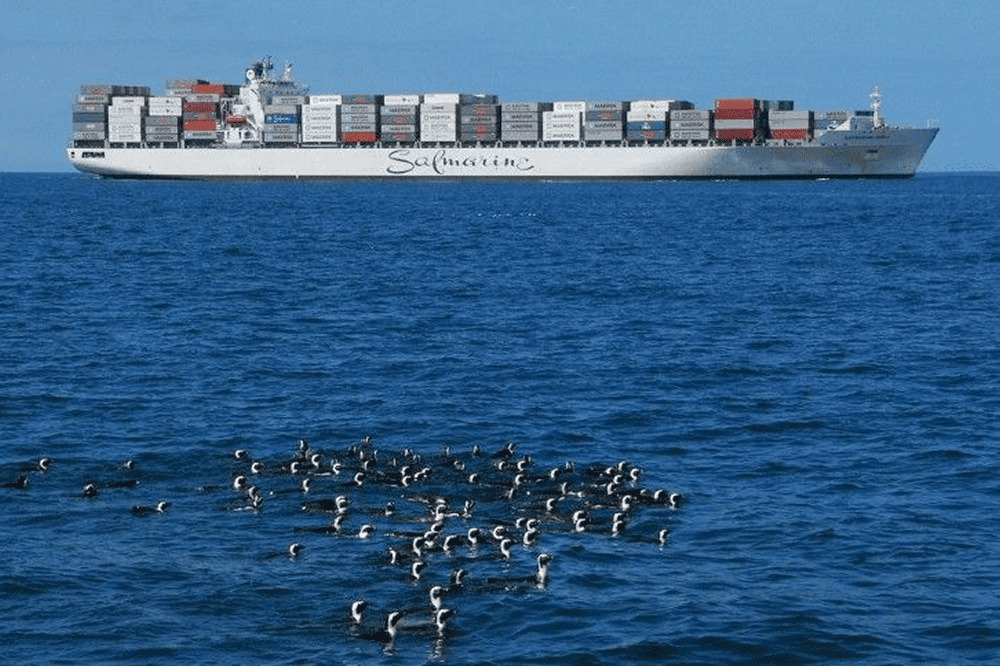Cargo Vessel Baltic Wind Runs Aground in Isefjord, No Pollution Reported
The cargo vessel Baltic Wind ran aground in Denmark’s Isefjord after leaving the navigation channel. No injuries or pollution were reported, and salvage planning is underway.

South Africa’s environment ministry has moved to tighten control over offshore ship-to-ship (STS) transfers, introducing new legislation that restricts operations near sensitive coastal areas and marine reserves. The rules, signed into law by Environment Minister Dion George, will be published in the Government Gazette in the coming weeks. According to the Department of Forestry, Fisheries and the Environment, STS transfers will no longer be permitted within marine protected areas, aquaculture development zones, or within three nautical miles of the coastline.
The regulations are aimed at reducing the environmental risks of offshore bunkering and are closely tied to the protection of the endangered African penguin, whose colonies in Algoa Bay and elsewhere have come under increasing pressure from pollution and shipping activity.
The new framework, issued under the National Environmental Management: Integrated Coastal Management Act, places a strong emphasis on monitoring and spill prevention. Operators are required to submit detailed Environmental Management Plans, secure ministerial approval before commencing transfers, and ensure wildlife surveillance during operations. Sightings of African penguins and marine mammals must be reported, while hydrophone systems will be used to detect the presence of sensitive species in real time.
Algoa Bay, one of the country’s busiest offshore bunkering areas, is subject to additional restrictions. Transfers may only be carried out at designated anchorages and only when weather conditions allow, with limits set at 22 knots for wind and a maximum wave height of two metres. Pollution control measures, including drip trays, leak detection equipment, and containment booms, must be deployed at all times, and a spill-response vessel is required to remain on standby within five nautical miles. Non-compliance carries heavy penalties, with fines of up to R2 million or imprisonment of up to five years.
For shipowners and charterers, the new legislation creates both logistical and commercial challenges. Bunkering operations off South Africa have become increasingly important as vessels reroute around the Cape of Good Hope to avoid Red Sea disruptions. The tightening of offshore rules adds a new layer of complexity, forcing operators to adapt routing plans, secure compliant service providers, and integrate wildlife monitoring and spill-response into routine operations.
With Algoa Bay now under heightened environmental scrutiny, industry observers expect a shift in bunkering strategies. Some operators may move to alternative supply points, while others will need to build longer turnaround times into their schedules. For insurers and risk managers, the legislation represents a shift toward stricter environmental accountability, increasing the importance of compliance verification in both charter agreements and underwriting.